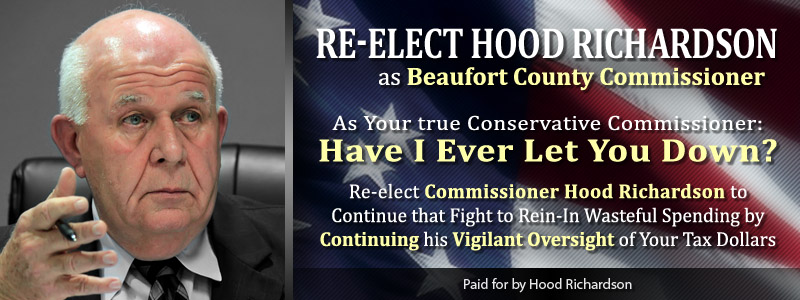Our Community Platform providing Essential Information to Know what is Real
If You Want a Covid “Amnesty,” Then Repent of Totalitarianism
Publisher's Note: This post appears here courtesy of the John Locke Foundation. The author of this post is Jon Sanders.
My latest piece for the American Institute for Economic Research discusses a critical shortcoming in Emily Oster's October 31 essay in The Atlantic calling for a "pandemic amnesty." Covid bullies ranging from the likes of Randi Weingarten to David French seized upon Oster's idea like a credibility lifeline. But what does Oster's amnesty idea lack?
Contrition, followed by repentance. I explain:
Oster's proposed amnesty between the "people who got it right" on Covid in the midst of so much uncertainty and those "who got it wrong" has obvious shortcomings of scope, which have been thoroughly dismantled (Don Boudreaux links to a few good ones in Cafe Hayek). The ones who got it wrong, after all, demonized the ones who got it right, disemployed them, harassed them, threw them out of restaurants and hosts of other places, shut their kids out of schools, forbid their medical treatments, closed off their travel options, and cruelly prevented people from visiting loved ones in nursing homes and hospitals or attending funerals and weddings.
The first tool they reached for was totalitarianism, and only now they're surprised they chose poorly.
There was no such conciliatory tone until it became impossible to deny what they got wrong and others got right: the terrible economic and social effects of lockdowns, deep learning loss from closing the schools, the ineffectiveness of the mandated masks against this respiratory virus as with all others, the ineffectiveness of the mandated vaccines and boosters, dangerous increases in substance abuse, deadly health outcomes from canceled medical procedures and foregone health checkups, increasing deaths of despair, the growing phenomenon of non-Covid excess deaths, and also the devastating inflationary effects from massive Covid spending packages. ...
[T]hey want absolution without having to show any actual repentance, let alone even offer an apology.
There's no apology or expression of regret in Oster's piece. In her view, getting it right "had a hefty element of luck," completely absolving her and others' reasoning faculties for going AWOL and hiding behind the skirts of their amygdalas, the brain's fear center. She thus concluded with a plea to regard [them] as mere victims of circumstance: "Let's acknowledge that we made complicated choices in the face of deep uncertainty, and then try to work together to build back and move forward."
No, that's woefully insufficient. "Forgive & Forget" without first admitting wrongdoing will inevitably translate into "Forget & Fall for it all again." It's not as if you picked the wrong paint color for the house. History will remember lockdowns and the rest of the Covid tyrannies as some of the most destructive policy experiments ever unleashed on people.
I conclude with a discussion of grace and the need for repentance:
Where grace is called for, it's for those whose trust in public health officials, media, politicians, and even their own doctors were betrayed. They were scared into submission, and many still bear the mental scars. But when you're forcibly keeping lonely elderly patients from their loved ones, kicking families off planes because a two-year-old doesn't wear a face mask properly, calling the cops on patrons and store owners, screaming at and filming people in public, self-righteously demanding denial of public services and even medical care to Covid dissenters, or debasing and humiliating schoolchildren, you should have known it was wrong.
The need for repentance
At the end of [the movie] "Tombstone," about to be shot, Ike Clanton tears off the red sash that signified his allegiance to the criminal gang the Cowboys. He was spared. The narrator informs us, however, that Clanton was "shot and killed two years later during an attempted robbery." He'd gone right back to wrongdoing. He hadn't repented.
If we are going to accomplish Oster's "work together to build back and move forward," it's imperative to acknowledge and address the wrongs done that tore everything down and everyone apart. Many of those things are still being done now in pockets across the country. Without their repentance, our pretending it never happened isn't grace, it's Stockholm Syndrome.
Go Back
My latest piece for the American Institute for Economic Research discusses a critical shortcoming in Emily Oster's October 31 essay in The Atlantic calling for a "pandemic amnesty." Covid bullies ranging from the likes of Randi Weingarten to David French seized upon Oster's idea like a credibility lifeline. But what does Oster's amnesty idea lack?
Contrition, followed by repentance. I explain:
Oster's proposed amnesty between the "people who got it right" on Covid in the midst of so much uncertainty and those "who got it wrong" has obvious shortcomings of scope, which have been thoroughly dismantled (Don Boudreaux links to a few good ones in Cafe Hayek). The ones who got it wrong, after all, demonized the ones who got it right, disemployed them, harassed them, threw them out of restaurants and hosts of other places, shut their kids out of schools, forbid their medical treatments, closed off their travel options, and cruelly prevented people from visiting loved ones in nursing homes and hospitals or attending funerals and weddings.
The first tool they reached for was totalitarianism, and only now they're surprised they chose poorly.
There was no such conciliatory tone until it became impossible to deny what they got wrong and others got right: the terrible economic and social effects of lockdowns, deep learning loss from closing the schools, the ineffectiveness of the mandated masks against this respiratory virus as with all others, the ineffectiveness of the mandated vaccines and boosters, dangerous increases in substance abuse, deadly health outcomes from canceled medical procedures and foregone health checkups, increasing deaths of despair, the growing phenomenon of non-Covid excess deaths, and also the devastating inflationary effects from massive Covid spending packages. ...
[T]hey want absolution without having to show any actual repentance, let alone even offer an apology.
There's no apology or expression of regret in Oster's piece. In her view, getting it right "had a hefty element of luck," completely absolving her and others' reasoning faculties for going AWOL and hiding behind the skirts of their amygdalas, the brain's fear center. She thus concluded with a plea to regard [them] as mere victims of circumstance: "Let's acknowledge that we made complicated choices in the face of deep uncertainty, and then try to work together to build back and move forward."
No, that's woefully insufficient. "Forgive & Forget" without first admitting wrongdoing will inevitably translate into "Forget & Fall for it all again." It's not as if you picked the wrong paint color for the house. History will remember lockdowns and the rest of the Covid tyrannies as some of the most destructive policy experiments ever unleashed on people.
I conclude with a discussion of grace and the need for repentance:
Where grace is called for, it's for those whose trust in public health officials, media, politicians, and even their own doctors were betrayed. They were scared into submission, and many still bear the mental scars. But when you're forcibly keeping lonely elderly patients from their loved ones, kicking families off planes because a two-year-old doesn't wear a face mask properly, calling the cops on patrons and store owners, screaming at and filming people in public, self-righteously demanding denial of public services and even medical care to Covid dissenters, or debasing and humiliating schoolchildren, you should have known it was wrong.
The need for repentance
At the end of [the movie] "Tombstone," about to be shot, Ike Clanton tears off the red sash that signified his allegiance to the criminal gang the Cowboys. He was spared. The narrator informs us, however, that Clanton was "shot and killed two years later during an attempted robbery." He'd gone right back to wrongdoing. He hadn't repented.
If we are going to accomplish Oster's "work together to build back and move forward," it's imperative to acknowledge and address the wrongs done that tore everything down and everyone apart. Many of those things are still being done now in pockets across the country. Without their repentance, our pretending it never happened isn't grace, it's Stockholm Syndrome.
| Policy Pizza: The Judicial System | Economic Truths, A Business Perspective, John Locke Foundation Guest Editorial, Editorials, Business, Op-Ed & Politics | Why the Left Relies on Statistical Illiteracy |
Latest Op-Ed & Politics
|
leftwing ideology can kill
Published: Friday, April 26th, 2024 @ 8:37 pm
By: John Steed
|
|
Governor expected to sign into law
Published: Friday, April 26th, 2024 @ 1:48 pm
By: John Steed
|
|
Atheist Soros, although born Jewish, was Nazi collaborator in Hungary in WWII
Published: Friday, April 26th, 2024 @ 11:58 am
By: John Steed
|
|
anti-immigration conservative nationalist beats Social Democrat incumbent 2 to 1
Published: Friday, April 26th, 2024 @ 9:19 am
By: John Steed
|
|
protecting children and parents from gender ideology promoters
Published: Friday, April 26th, 2024 @ 6:45 am
By: John Steed
|
|
Biden wants to push this in public schools and Gov. deSantis says NO
Published: Thursday, April 25th, 2024 @ 9:19 pm
By: John Steed
|
|
eve 45% of Latinos support mass deportation
Published: Thursday, April 25th, 2024 @ 12:40 pm
By: John Steed
|
|
this at the time that pro-Hamas radicals are rioting around the country
Published: Thursday, April 25th, 2024 @ 8:01 am
By: John Steed
|
|
Pro death roundtable
Published: Wednesday, April 24th, 2024 @ 12:39 pm
By: Countrygirl1411
|
|
populist / nationalist anti-immigration AfD most popular party among young voters, CDU second
Published: Wednesday, April 24th, 2024 @ 11:25 am
By: John Steed
|
|
political scheme behhind raid on Mar-a-Lago
Published: Wednesday, April 24th, 2024 @ 9:16 am
By: John Steed
|
|
how many of these will come to North Carolina?
Published: Tuesday, April 23rd, 2024 @ 1:32 pm
By: John Steed
|























